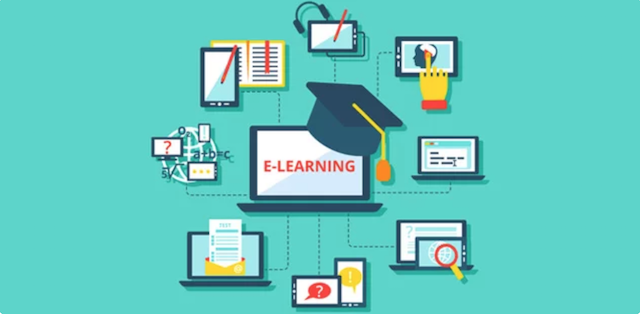In the ever-growing technology dominated society we live in, phones and tablets have become necessities to execute simple tasks. Only a decade ago, such devices were arbitrary additions to our lives, but now they are omnipresent even in schools. Such a system in which electronic devices are used to complement one’s education is known as e-learning.
E-learning is a rapidly growing industry due to its affordability (often software is free) and its simplicity. The online platform encourages curious learners to seek out more than what their schools provide and to keep expanding their horizons through online courses. Given its capability to share materials in a plethora of formats such as videos, documents, and interactive images, e-learning is in fact a considerably improved version of the typical education system. Some argue that e-learning removes the sense of community in a typical class. However, in many platforms such as Lynda, users can even communicate with professors via chats or forums. Instead of considering e-learning as an auxiliary, it must be a replacement for classical education.
The benefits of e-learning do not stop there. On the online platform, students are provided with freedom to choose the difficulty of their courses. Within the course itself, students can skip the topics they find easy and retake the challenging ones at any time or place, at their own pace. This flexibility encourages students to take the time to completely grasp the difficult topics they might simply ignore in a traditional class, allowing for a better understanding of the subject.
E-learning’s advantages also resound within the realms of business and industry. For instance, using the internet to further one’s knowledge allows the very latest information to be accessed. This is particularly important if the e-learning training is being given to employees in a sector where keeping up-to-date on industry developments is of the utmost importance. Many businesses are attracted by the accessibility of such systems and, thus encourage training via e-learning.
E-learning is proving especially crucial in the developing world, as the digitization of learning can accelerate progress towards the fourth goal of the Sustainable Development Goals, set by the United Nations Development Programme, which aims to ensure quality education for all. There have been cases in South Africa where the slow and relatively expensive internet connections have hindered the spread of e-learning. However, with time and patience, e-learning may fuel more industries to improve such downfalls, potentially contributing to further development in South Africa. Moreover, industries within developing countries can take advantage of this medium to develop their workers’ professional skills, also contributing to the economic growth. Because e-learning platforms are usually free, there will also be little to no financial burden on these companies. As such, e-learning in the long-run can bring about not only local but also international changes through economic growth and development.
Undeniably, however, the drawbacks of e-learning cannot be ignored. Practical skills such as crafting or painting certainly require tangible experience to be taught properly. Similarly, assessments that are computer-marked generally have a tendency to be only knowledge-based rather than being practicality-based. Some claim that this method does not reward the critical thinking skills that we need in society.
Nonetheless, the deficiencies do not outweigh the benefits of such systems. As an avid e-learner myself, I quickly assimilated to the digitization of education and benefited from the essence of e-learning. In high school, I learned how to code in HTML, and although programming can be considered a practical skill, through this medium, I published my own e-learning platform to give back to the online community that has kindled and fueled my interests in programming. As e-learning encourages productivity and efficiency, the digitization of education will never cease and soon, it will become a rival to the traditional education systems.


